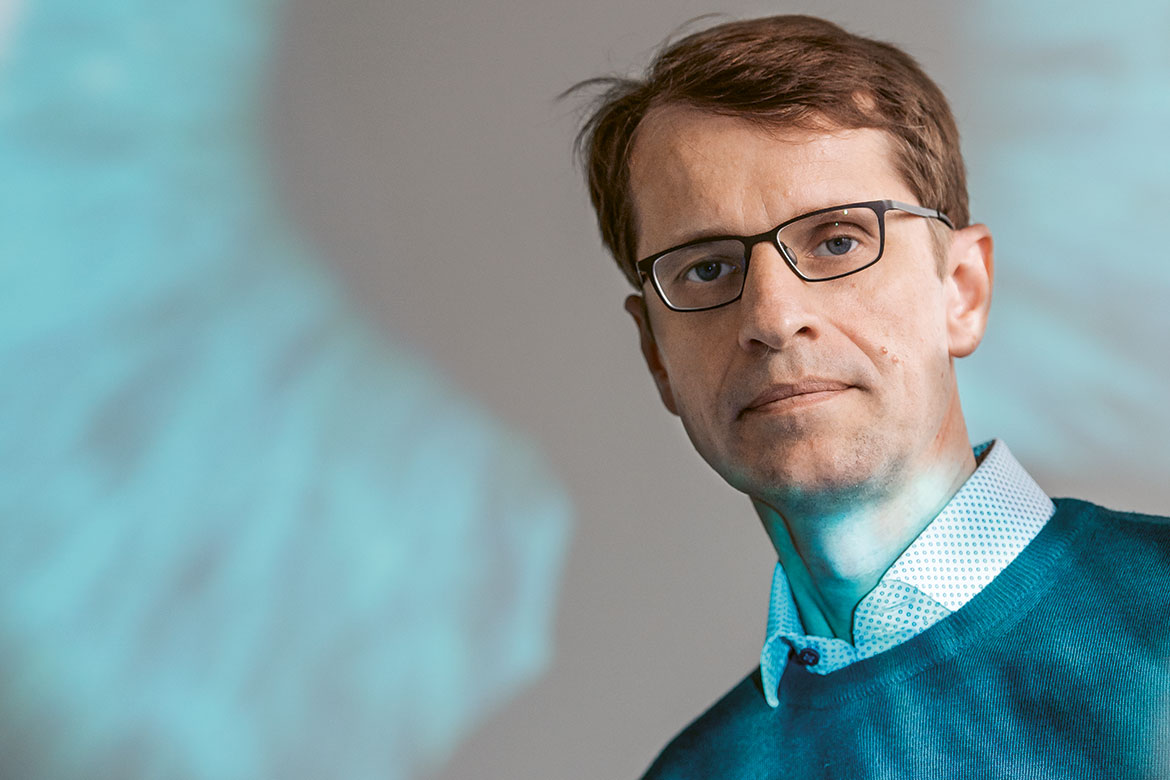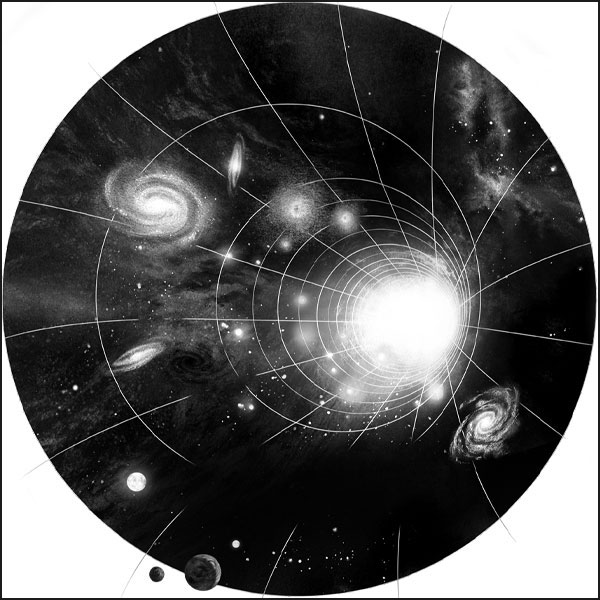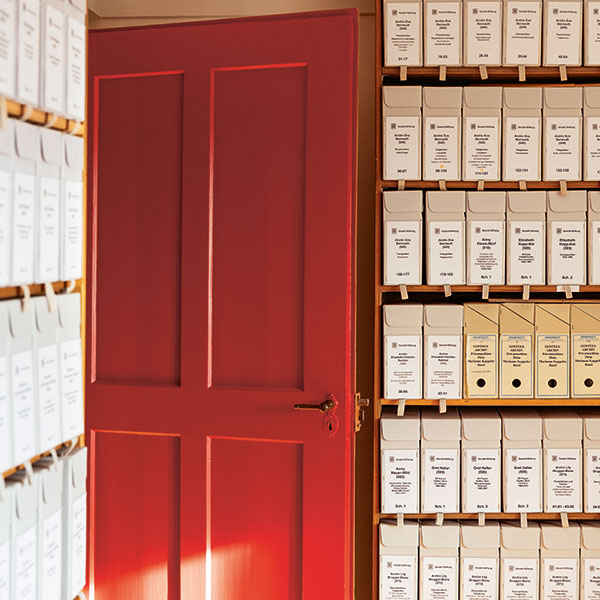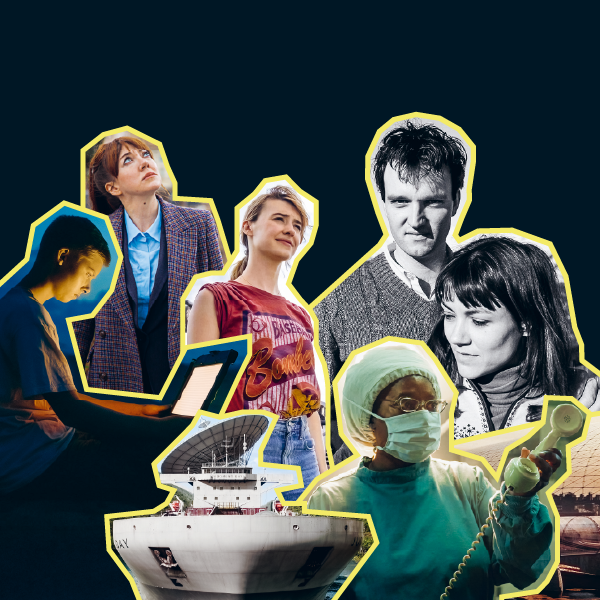Botond Roska: Of maths and sight
And the blind shall see: The neurobiologist Botond Roska has grown an artificial retina in a test tube and is developing innovative gene therapies for the eye. We meet a driven man.

Neurobiologist Botond Roska | Image: Valérie Chételat.
Botond Roska’s scientific colleagues use superlatives when they describe him: breath-taking, unique, brilliant. The research into the human retina conducted by this Hungarian-born, 48-year-old neurobiologist has attracted attention from all over the world. In recent months, he and his team have succeeded in growing an artificial, completely functional retina in a test tube. It’s a landmark event in science.
A friendly fellow with glasses and a blue polo shirt introduces himself at the well-guarded entrance to the Novartis Campus in Basel: “Hi, I’m Botond”. He then leads us past buildings by international star architects, into the back section of the site. Just a few weeks ago, this became the provisional laboratory of the Institute of Molecular and Clinical Ophthalmology in Basel, which Roska founded in December 2017 in collaboration with the senior consultant of the Eye Clinic of the Basel University Hospital.
For Roska, the Institute has turned a dream of many years into a reality. “We want to bring basic research and medicine together, and use this to put innovative treatment methods into practice”.
The University of Basel, the University Hospital and the pharmaceutical company Novartis are together investing some CHF 20 million each year in the Institute. Over the coming years, over a hundred posts and ten new professorships will be created here.
There are sound reasons for this great interest in Roska’s research. As our life expectancy rises, the number of people with eye diseases is going to increase exponentially in many countries. In ophthalmology, however, the past few decades have seen hardly any medical innovations. Botond Roska wants to change that. “I would like my work to help blind people to get their sight back”. In the struggle against eye diseases, this leading scientist combines nanotechnology with mathematics and the neurosciences.
Calculating cells like a supercomputer
It was Roska who recognised what diseases arise in which cell types. “We are in a position today to combat diseases in a cell-type-specific manner”. To do this, he and his team manipulate viruses so that they transport genetically altered material into the diseased cells. With this approach, they should in future be able to treat a multitude of eye conditions such as Stargardt disease and Retinitis pigmentosa – both degenerative diseases of the retina.
Botond Roska sits at his laptop and opens images of the retina he has cultivated. The photos have been coloured to show the different cell types of which they are comprised – there are about 100 of them. “The cells are like different little computers that come together to form a supercomputer”. Roska speaks with infectious enthusiasm about his research. The retina, he says, is an image processor that can be completely accounted for in mathematical terms. “My understanding of things is deeply mathematical. I love the clarity of this language”. What science knows today about the functioning of the retina is largely thanks to him.
Roska is the son of a musician and a computer scientist. He grew up in Budapest, and his first passion was music. He studied the cello until an injury to his hand brought his career to a premature end. Roska had to re-orientate himself, and so began studying medicine and maths. After completing his degree, however, he didn’t yet feel in a position to work as a doctor. “I still knew too little about the human organism”.
It was over dinner that an acquaintance of his father’s triggered his interest in the retina. In order to understand it, he embarked on studies and research in the neurosciences in the USA, then took on a job as team leader at the privately run Friedrich Miescher Institute. Five years ago, he set himself a new goal: “I said to myself that I wanted at least one of my discoveries to bring fundamental progress to medicine”.
Roska describes himself as a driven man. “When I’m awake, I’m thinking”. He spends a lot of his time travelling. In the last four weeks alone he’s been in Barcelona, Paris, Honolulu, Boston and Stanford. He speaks at a conference almost every other week. “Exchanging ideas with other scientists is a prerequisite for my own research”, he says.
If Roska isn’t on the move, he has a strict daily routine. “In the morning I think, and in the afternoon I talk to people”. After getting up, he solves mathematical problems for an hour – he calls it brain-training. Then he sits down at his desk and thinks about his research – usually in his apartment in Oberwil, just outside Basel. At midday he gets on his bike and cycles into the city.
Once at the Institute, he meets the members of his team and external researchers. His most frequent meetings are with Hendrik Scholl. They talk every day, even at weekends. “We’re constantly exchanging ideas. That’s the only way we can unite the different cultural approaches of the research laboratory and hospital medicine”.
Botond Roska hardly has any leisure time. He finds it easy to engage in contemplation, he says, laughing. “What’s more difficult for me is being social”. He feels a little uneasy when in larger groups of people. He sometimes takes a break from his work, but only on Sundays. Then he plays cello, listens to Bach, or spends time with his wife.
Basel is the best research site in the world for a biomedical specialist like him, says Roska. He has sufficient financial means for his research, and he loves the calm of the city and the unpretentiousness of the people. “I think this is the way to have a fulfilled life: work, love what you’re doing, and stay modest with it”. But now he’s got to go off to his next meeting with a research colleague. It’s just before 6 p.m. Today, too, it will be a long time before Botond Roska’s working day ends.
Simon Jäggi is a journalist in Basel.




